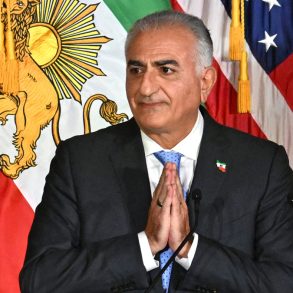A New Push to Restore Privacy
U.S. Representative Anna Paulina Luna has introduced a bill that aims to repeal the Patriot Act, calling it a dangerous tool used to violate the rights of American citizens for more than two decades. Her proposed legislation, titled the “American Privacy Restoration Act,” is part of a growing effort to limit government surveillance and protect the Fourth Amendment, which guarantees protection against unreasonable searches and seizures.
“For over two decades, rogue actors within our U.S. intelligence agencies have used the Patriot Act to create the most sophisticated, unaccountable surveillance apparatus in the Western world,” Luna said when announcing her bill. “My legislation will strip the deep state of these tools and protect every American’s Fourth Amendment right against unreasonable searches and seizures. It’s past time to rein in our intelligence agencies and restore the right to privacy.”
Luna’s decision places her in rare agreement with organizations like the American Civil Liberties Union (ACLU), which has long criticized the Patriot Act for giving the federal government powers that go far beyond what is appropriate in a democratic society.
The Birth of the Patriot Act
The Patriot Act was passed on October 25, 2001, just weeks after the attacks on September 11. Then-President George W. Bush signed it into law the following day. The full name of the legislation is the Uniting and Strengthening America by Providing Appropriate Tools Required to Intercept and Obstruct Terrorism Act, although most people refer to it simply as the Patriot Act.
At the time, many lawmakers supported the bill because of the fear and urgency surrounding terrorism. The law gave the government broad new powers to conduct surveillance, access business records, and perform secret searches in the name of preventing terrorist attacks. According to the ACLU, many members of Congress did not even have time to read the bill before voting on it. The Bush administration warned lawmakers that anyone who voted against it would be blamed if another attack occurred.
These warnings led to an almost unanimous vote. Only one senator, Democrat Russ Feingold, voted against the bill in the Senate. He later explained his reasoning in a 2021 opinion piece for The Nation. “I voted against the Patriot Act because of the cost it was asking the American people to pay in the form of their civil rights, particularly their privacy rights and especially for people of color,” Feingold wrote. “My fears on this front have come to pass over the past 20 years, and our country has yet to fully reckon with the discriminatory impact of the Patriot Act on communities of color.”
A History of Abuse and Overreach
Critics argue that the Patriot Act opened the door to mass surveillance not just of foreign threats, but of American citizens. Section 215, one of the most controversial parts of the law, allowed the government to collect phone records and other business documents without a warrant. Although Section 215 expired in 2020, many of its practices have continued under different legal authorities.
The “sneak and peek” provision of the law allowed government agents to enter a person’s home or office and conduct a search without immediately notifying the person. Though it was meant to be used in terrorism investigations, reports later revealed that the majority of these cases were related to drug crimes, not national security.
Surveillance powers expanded even further during the Obama administration. In 2013, then–Director of National Intelligence James Clapper developed a cloud-computing system that made it easier for intelligence officials to access and share surveillance data. This system, according to national security analysts, removed traditional checks and balances and made it possible for tens of thousands of government employees to access sensitive data without proper oversight.
Naval intelligence officer Jennifer Dyer explained how the new system worked. “After the technology had changed and the workplace policies had changed, basically that access was based on ‘user permissions’ that would allow you to look into the database itself,” she said. “You didn’t have to ask anyone at NSA to retrieve the information.”
These changes led to a 19 percent increase in the number of Americans targeted under Section 702, a part of the Patriot Act that allowed for the collection of emails and phone calls involving foreign contacts, even if one party was an American citizen. According to the ACLU, this type of surveillance often included Americans who were not suspected of any wrongdoing.
How the System Was Used Against Trump
The surveillance system built under the Patriot Act played a major role in the controversy surrounding President Trump’s campaign and administration. In the final days of the Obama presidency, new rules were approved that allowed the National Security Agency to share surveillance data with 16 other intelligence agencies. This meant that raw, unfiltered data could be accessed and used by agencies across the government, from the CIA to local law enforcement.
Critics argue that this system was abused to spy on members of Trump’s transition team. National Security Adviser Michael Flynn’s name was reportedly “unmasked” in classified documents and leaked to the media. He was later fired for not being fully honest about a phone call he had with a Russian diplomat.
“The Obama administration set up the intelligence agencies in such a way that it enabled a crime spree of spying and leaking,” said one report from The Gateway Pundit. “It has become one huge minefield for the Trump administration.”
Ashley Gorski, a staff attorney with the ACLU, also raised concerns about the ease with which intelligence officials could now access personal data. “Seventeen different agencies shouldn’t be sifting through Americans’ emails without ever obtaining a warrant,” she said. “The standard for unmasking someone’s identity in these intercepted communications is a low one, and the risk of abuse is real.”
A System Without Limits
The growing power of intelligence agencies has led some to compare the current system to something out of a dystopian novel. As reported in The New York Times in 2016, the Obama administration even allowed the NSA to share data with other agencies without applying privacy filters. That meant emails, phone calls, and messages collected overseas could be accessed by the FBI and even shared with local police, despite being obtained without warrants.
This expansion of power raised alarm bells for civil liberties advocates. In a 2016 report titled “Say Hello to Big Brother,” one analyst warned, “This sort of spying, which will soon be considered ‘routine,’ can be forwarded to local or state police. Police are sure to use this new power to target certain demographics they already pick on.”
In many cases, surveillance data was used in everyday criminal investigations unrelated to terrorism. Because this data was obtained without a warrant, law enforcement agencies were told to use “parallel construction,” a tactic used to hide the real source of information from judges and defense attorneys. This not only violated due process but made it nearly impossible to challenge the use of illegally obtained evidence in court.
The Public Responds
Luna’s bill has received wide support on social media, with many Americans expressing gratitude for her efforts. Supporters filled her posts with messages of encouragement and approval. However, some warned that the damage may already be done. “I’m sure they’ve already branched it out into all of the AI on our phones and computers and there will be no end to it,” one commenter said. Another added, “It’s impossible to walk back the damage already done to privacy.”
Even with Section 215 now expired, much of the Patriot Act’s power lives on through other surveillance laws. The NSA’s use of “about” collection, which allowed it to search through the content of emails and web browsing data without a warrant, was only recently shut down by a special court ruling. ACLU attorney Patrick Toomey responded, “This kind of warrant-free, suspicion-free surveillance is exactly what the 4th Amendment prohibits.”
A Law Born in Crisis, But Too Dangerous to Keep
The Patriot Act was created during a time of fear and crisis, when Americans were desperate for protection. But the fear of terrorism should not justify the loss of basic rights. Luna and other critics believe that the law’s powers are too broad, too corrupting, and have no place in a free society.
“Anyone trying to convince you otherwise is using ‘security’ as an excuse to erode your freedom,” Luna warned.
As the debate continues, the question remains: can the government be trusted with the power to monitor its own citizens without meaningful oversight? And if not, is now the time to finally bring the Patriot Act to an end?








